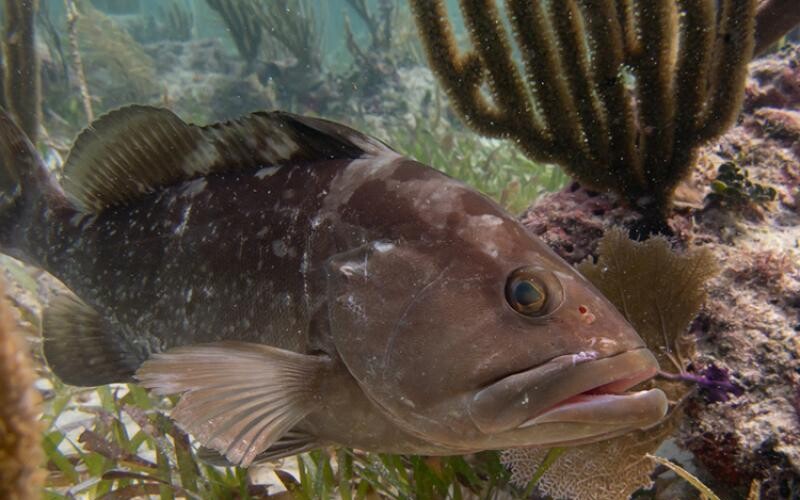New research initiatives with $16.8 million in RESTORE funding from the federal government will conduct collaborative ecosystem science research for use by natural resource managers in the Gulf of Mexico.
NOAA’s Southeast Fisheries Science Center is involved in two new projects.
A team of researchers will study red tide and reef fish modeling. The team will update and improve an ecosystem model of the West Florida Shelf to account for red tide mortality when assessing Gulf of Mexico reef fish. The project will develop new approaches to map red tides using satellites, and map oxygen concentrations in relation to red tides. These products will be incorporated into a fisheries ecosystem model to estimate red tide mortality on valuable commercial and recreational species.
Those estimates will be used in stock assessments and recommendations on the amount of reef fish that can be caught each year in 2024–2028.
A second project will focus on building next-generation fishery forecasting capacity. The project team will address limitations and uncertainties in the stock assessment process by developing novel model diagnostics and interim assessment methods.
“We will incorporate these new methods into active stock assessments. This will provide more efficient and reliable stock projections used to derive overfishing limits and acceptable biological catch estimates,” according to a statement from the science center.
In all, the National Oceanic and Atmospheric Administration is awarding $16.8 million to 32 organizations working across 10 projects to conduct collaborative ecosystem science research.
“The Gulf of Mexico is a vibrant ecosystem with diverse and productive habitats,” said Nicole LeBoeuf, director of NOAA’s National Ocean Service. “These awards represent NOAA’s commitment to providing the best available science to the natural resource managers who make important decisions about how to balance rapidly changing economic, environmental, and social pressures in the region.”
The projects will examine:
· Impacts from boating activities on seagrasses.
· Protection of coastal bird populations.
· Protection of marine mammals.
· Red tide mortality in reef fish.
· Restoration and harvesting oysters.
· Responses to oil spills.
· Other management actions in the Gulf of Mexico
NOAA and the Department of Commerce also say they will spend $20 million in funding to address the impacts of climate change on red snapper and other reef fish in the Gulf of Mexico, “to determine the best tools to collect reliable recreational fishing data that support science and management decision-making for red snapper.”
“Red snapper is one of the Gulf of Mexico’s most iconic species and perhaps one of the region's greatest management success stories,” said Secretary of Commerce Gina Raimondo.
It’s also one of the most problematic fishery management plans, with the Gulf of Mexico Fishery Management Council and NOAA Fisheries besieged by demands from various recreational and commercial user groups and their political allies.
NOAA Fisheries is awarding the Gulf States Marine Fisheries Commission nearly $1.5 million through a cooperative agreement to modernize state recreational data management systems. “The commission — in coordination with NOAA Fisheries — will work with state and federal partners to ensure common data standards, create and enhance certified state data systems and host workshops to improve data accuracy,” according to NOAA Fisheries.
Other funding priorities are:
• Develop and implement Gulf of Mexico video and acoustic camera surveys to improve reef fish data timeliness and generation of density estimates ($2 million).
• Collaborate with Gulf States Marine Fisheries Commission and state partners to increase accessibility of state survey data ($7.35 million).
• Improve the estimates of recreational fishing effort and discards, which represent two of the greatest sources of uncertainty in managing and assessing Gulf of Mexico reef fish ($10.65 million).







